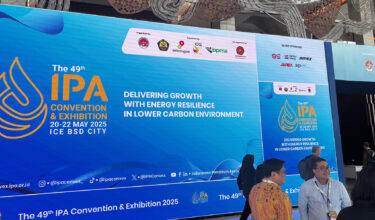Thinking Ahead, Overcoming Challenges: Q&A with Allen McIntosh, Factory Manager & Ryan Barclay, Supply Chain Manager
We're talking all things sourcing and supply chain as we catch up with Allen and Ryan — who play a key role for FIS in ongoing stock management, production and supplier relationships.

Allen McIntosh (Factory Manager) and Ryan Barclay (Supply Chain Manager), FIS Chemicals
• • •
FIS:What were your career paths prior to joining the FIS team?
Allen: Before joining FIS Chemicals, I worked for Initial Textile Services. This started as a summer holiday job, and I ended up being Assistant Factory Manager and staying for 5 years. After this I had a short career as a self-employed insurance salesman, not for me. I joined FIS in February 1992.
Ryan: After completing an MA in Management Studies at Aberdeen University in the early 2000s I went on to join a private specialist chemical company. I worked with various departments including, Manufacture and Wellbore Completions (including several trips offshore worldwide) before taking up a full time Logistics position. Following that, I went on to work within the Logistics Division at MI Swaco before progressing to Logistics and Procurement Manager at a busy oilfield service company.
FIS: Can you describe your roles with FIS and their main objectives / focuses?
AM: As Factory Manager, my role heavily involves purchasing, production scheduling, deliveries, and stock control. My main objectives at all times are geared around having product on site to achieve our clients' delivery requirements.
RB: I am the Supply Chain Manager at FIS Chemicals. I work closely with various chemical / packaging suppliers and transport providers sourcing materials and obtaining cost effective solutions for upcoming projects.
I also support our Technical team in sourcing new raw materials as well as negotiating pricing and setting up agreements with new vendors. This often requires continuous adjustments or refinements due to the fast-paced environment and client expectations. I am responsible for all international trade (import/exports) for FIS too.
FIS: What are some of the challenges faced in recent years in terms of supply chain and logistics?
AM: The supply chain was massively affected during COVID, with some products incurring much larger than normal lead times. This was very challenging for our ordering and stock control processes and we had to have a bit of a rethink to adapt.
RB: The lengthening of supplier’s delivery times across the world is the most frequent indicator of the widespread strains on supply chain. Unstable material costs have markedly impacted profit margins too.
We've experienced long delays on all materials sourced outside the EU, due to port congestion / disrupted vessel schedules. It can be particularly frustrating when your goods are on a vessel, and you spend many hours looking at a live tracker system of a vessel that appears to be going round in circles!
"Maintaining strong relations with key suppliers remains a top priority. Communication and trust that has been built up over time really matters in these scenarios. There is a deep understanding between the businesses and it pays off when issues arise."

FIS: How has FIS adapted to these challenges?
AM: To overcome this, we had to place orders in advance of requirements and find new suppliers. Encouragingly, things have started to revert to more normal lead times over the last few months.
RB: Maintaining strong relations with key suppliers remains a top priority. Communication and trust that has been built up over time really matters in these scenarios. There is a deep understanding between the businesses and it pays off when issues arise. We've also looked at establishing diversified suppliers for several key raw materials, to give ourselves some options.
Planning for delays helps too. We need to ensure we have enough materials to fulfil every order that comes through, as well as safety stock.
Alongside all of that, keeping an accurate record of all inventories is absolutely vital.
"The most important skills required to succeed here are definitely to be a team player and work together with others well."
FIS: What are the important skills and/or attitudes someone needs to succeed on your team?
AM: Simply put, the most important skills required to succeed here are definitely to be a team player and work together with others well.
RB: Effective communication is key — as is being adaptive and decisive. Planning ahead and problem solving are almost a daily occurrence, so I'm looking for candidates who are organised and flexible.
FIS: What do you do to relax outside of work?
AM: I have a season ticket at Pittodrie and enjoy getting out into the outdoors and hill walking. I actually completed the Munros in August 2020 and walked the West Highland Way in May 2022.
RB: I like to go to the gym first thing in the morning (6am!) and love spending time with my family at the weekends. I also enjoy teaching drums but no longer have time to play in a band anymore.
FIS: Are there any key aims or targets you have for 2023 and beyond?
AM: I have been part of the team for a long time, and so my main aim is always to see FIS continue to grow and expand our share of the market.
RB: I want to continue to optimise our supply chain processes and eliminate duplicate data where possible, for example. There's also an ongoing focus on widening supplier focus, particularly looking at green alternative materials. Long term, we want to implement technology where possible to streamline processes, improve visibility and reduce manual workload where possible.
For the latest news and updates from FIS, follow us on LinkedIn.





